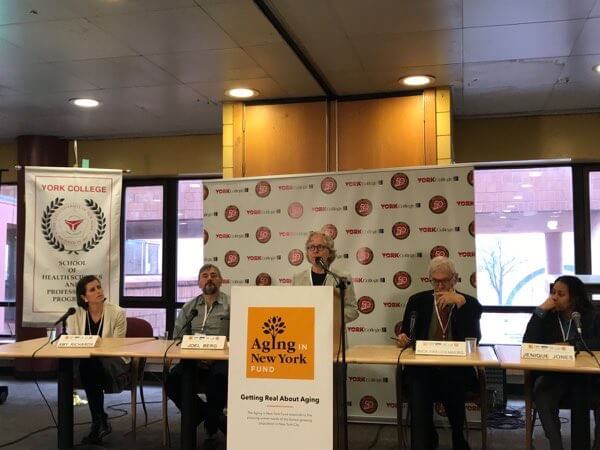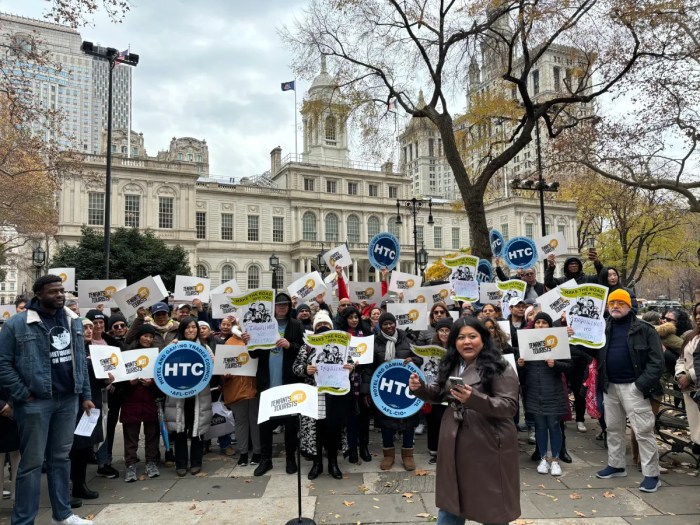By Patrick Donachie
Many seniors throughout the borough and city have difficulty obtaining enough food for themselves and others, according to panelists at a forum sponsored by the city’s Department for the Aging held at York College in Jamaica.
Nicholas Freudenberg, a Distinguished Professor of Public Health and director of the doctoral program at CUNY’s School of Public Health, also said the rhetoric of President Donald Trump has created a festering atmosphere of fear among documented and undocumented immigrant seniors.
“For many services, immigrants are simply not showing up to access them,” Freudenberg said during the April 6 panel discussion. “We heard that people believed they needed to choose between hunger and deportation, and they chose hunger.”
The event also included numerous stations set up by government agencies and nonprofits so attendees could learn more about opportunities available to seniors in the community. Nancy Arzuaga Garcia represented LiveOn NY at one table. She provided information indicating that 35 percent of older adults in the city are living with food insecurity, and 40 percent of older New Yorkers who might qualify for the Supplemental Nutrition Assistance Program are not enrolled.
According to a DFTA analysis of data from the 2011-2013 US Census Community Survey, several areas in Queens have elevated levels of poverty in seniors older than 60 years old, including the community districts that include Corona, Elmhurst and the Rockaways. All these areas have a percentage of seniors that exceeds the citywide average percentage of seniors 100 percent below the federal poverty level.
DFTA Commissioner Donna Corrado offered opening remarks, reminding attendees that New York City was a resource-rich community despite the stark challenge of combatting hunger. Besides Freudenberg, other attendees included Joel Berg, the CEO of Hunger Free America; Jenique Jones, the director for City Harvest’s Program Operations; and Amy Richards, the coordinator for the Partnership for Healthier Queens at Make the Road NY.
The event concluded with a question-and-answer session that turned heated at times, with many questions focusing on issues with food pantries. One questioner said she often encountered discrimination at the pantries, with employees allegedly assisting individuals of their own ethnicity. Another questioner angrily said the first questioner was being inconsiderate and discriminatory towards immigrants who were accessing services at the pantry.
Someone else asked how she could start a food pantry, which Freudenberg said pointed to a broader question about food insecurity.
“How do food pantries and other social service programs get set up? They get set up by people individually working on their own because we have not in this society, in this country, decided that people have a right to food,” he said. “And so when that right is not realized and there are hungry people, it requires a dedicated person like you, or many others in this room, to get together and start something.”
Reach reporter Patrick Donachie by e-mail at pdona





































